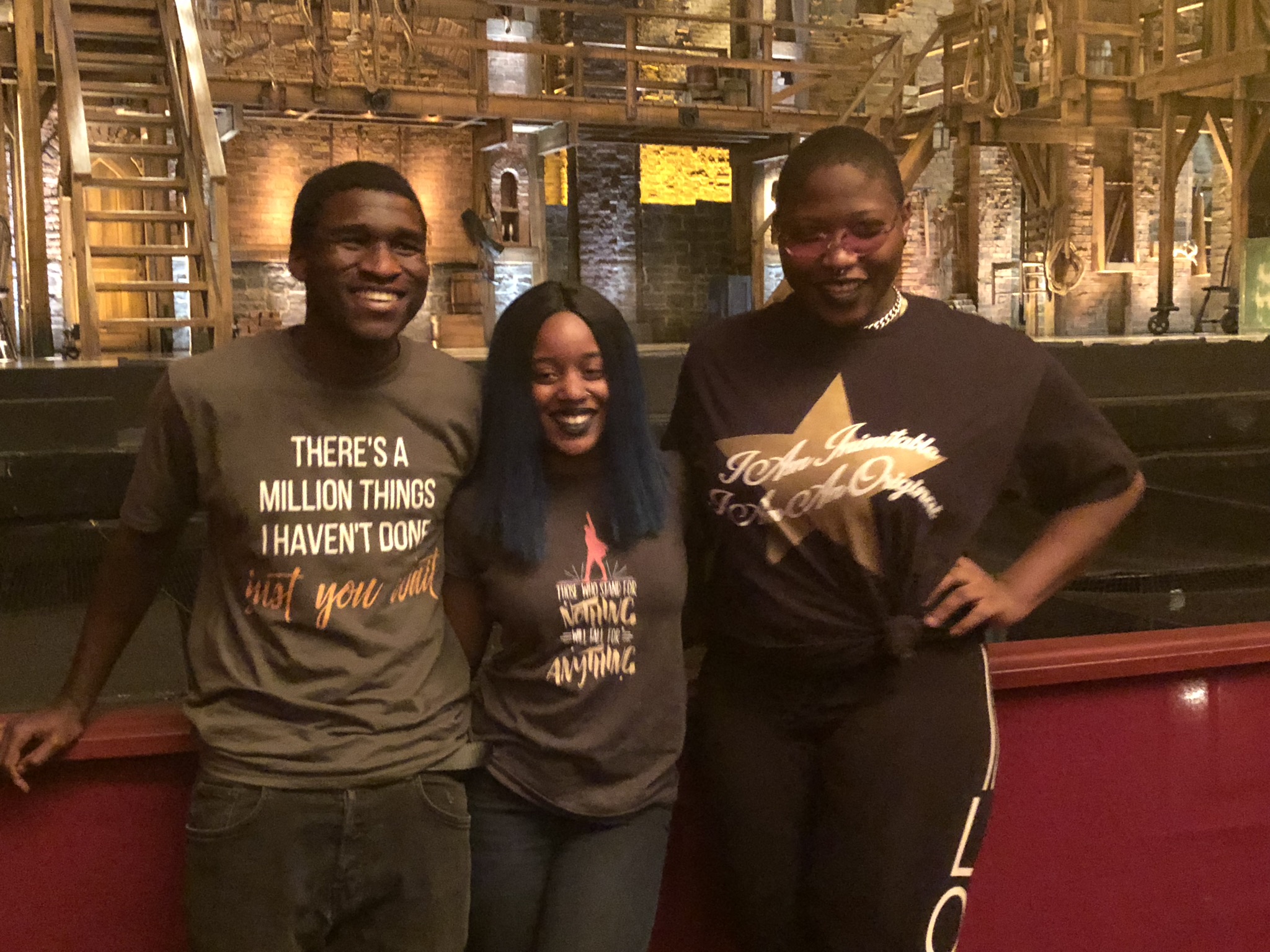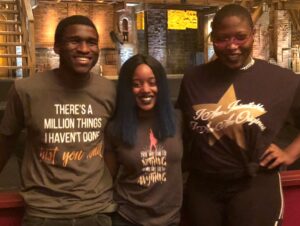Jacqueline Kennedy was a well-known patron of the arts. As first lady, she turned the White House into an “epicenter for artistic performance and expression.” In the East Room, she requested a portable stage be built to host performances, including a series of concerts for young people. According to the JFK Library website: “She understood that to a child, American history can often be a dry and dull affair, and she saw a visit to the President’s House as a chance to spark each child’s interest in the people who made the country what it is today.” The Kennedys’ love of history and the arts was one of the main reasons the proposed National Cultural Center authorized by President Eisenhower in 1958 changed its name to the John F. Kennedy Center for the Performing Arts after his assassination.
One can imagine First Lady Kennedy smiling down on that very center the morning of September 12, 2018, as dozens of students and chaperones from twenty of Washington, D.C.’s Title 1 high schools enthusiastically participated in a day-long event centered on the life of Alexander Hamilton. (Title 1 public schools serve high percentages of high-poverty children.) She’d probably be pleased to know that a musical based on the life of the “bastard, orphan, son-of-a-whore and a Scotsman,” who grew up to be “the ten-dollar founding father without a father,” has become a national phenomenon.
Her own education involved the kind of well-rounded experiences with the arts that many low-income kids and children of color lack in America today. But the day’s performances highlighted D.C. schools who work to provide theatre arts opportunities for their students.
Before the main performance of Hamilton by the touring cast, students got their shot at performing original works inspired by the musical thanks to the Hamilton Education Program (HEP). Schools with students interested in performing must select one entrant (single or group) to submit a performance tape for HEP to review. In this case, ten student groups from the 20 schools in attendance were selected to perform. Participating schools are expected to spend several weeks preparing using curriculum materials provided by HEP. Sasha Rolon Pereira, Director of HEP, recalls many late-night email exchanges with teachers and her office in advance of this month’s event.
Danielle Benson, J’niya White, and Lorenzo Johnson represented the KIPP DC College Preparatory School, performing “Valley Forge Song.” Check out this video of their performance from Theater Arts teacher Caity Schneeman:
American troops spent the winter of 1777-1778 during the American Revolutionary War at Valley Forge, known as a winter of suffering and rebuilding in brutal conditions. Benson outlined her team’s creative process, including reading about Valley Forge, collecting significant facts about it, and writing an original song lyric: “It’s the winter Valley Forge systematic training regimen, transformed ragged soldiers into better men.” The strong beat of their rap quickly got the crowd involved as students in the audience clapped, cheered, and held up their illuminated phones to encourage the performance.
Other student performances ran the gamut from single students reciting a poem or rap, to groups of two or three using songs or spoken words to interpret early American history. Many challenged the founding fathers for their hypocrisy as slaveholders founding a “free” nation while others highlighted achievements like winning the Battle of Yorktown and writing the Bill of Rights. The audience of their peers supported them enthusiastically, having been directed by cast member and on-stage host Chaundre Hall-Broomfield to honor the stage as a creative “safe space.”
Pereira wants participating students to walk away with a vision “better than the future they imagined;” that in seeing cast members of every ethnicity and race representing America’s founding fathers they will know they, too, “can have those successes.” The HEP curriculum, created by Tim Bailey, Director of Education at The Gilder Lehrman Institute of American History, set out to engage students with “who we are” as Americans. Its threefold goals are to provide content about the founding era, to help students gain skills — especially around evidence-based argumentation, and to provide an experience they will never forget. Bailey quips: “I think we did it.” And anyone in the audience would agree: performances by the students and the cast were unforgettable.
As my colleague wrote earlier this summer, research has shown the value of a well-rounded education which includes art, music, and history. The KIPP students credit their Theatre Arts teacher, Caity Schneeman, with building a strong program at KIPP, one Schneeman humbly says has grown in her eight years from “nothing to something.” Originally created in 2015 to offer New York City students the chance to experience the Broadway blockbuster, the HEP program will welcome students in 14 cities this year to see the show and compete for a moment on stage. Kennedy wanted all kids to have the opportunity to engage with art and our nation’s past, and the Hamilton Education Program successfully challenges students to interact with our history, which has flaws and flourishes but is never dull.

